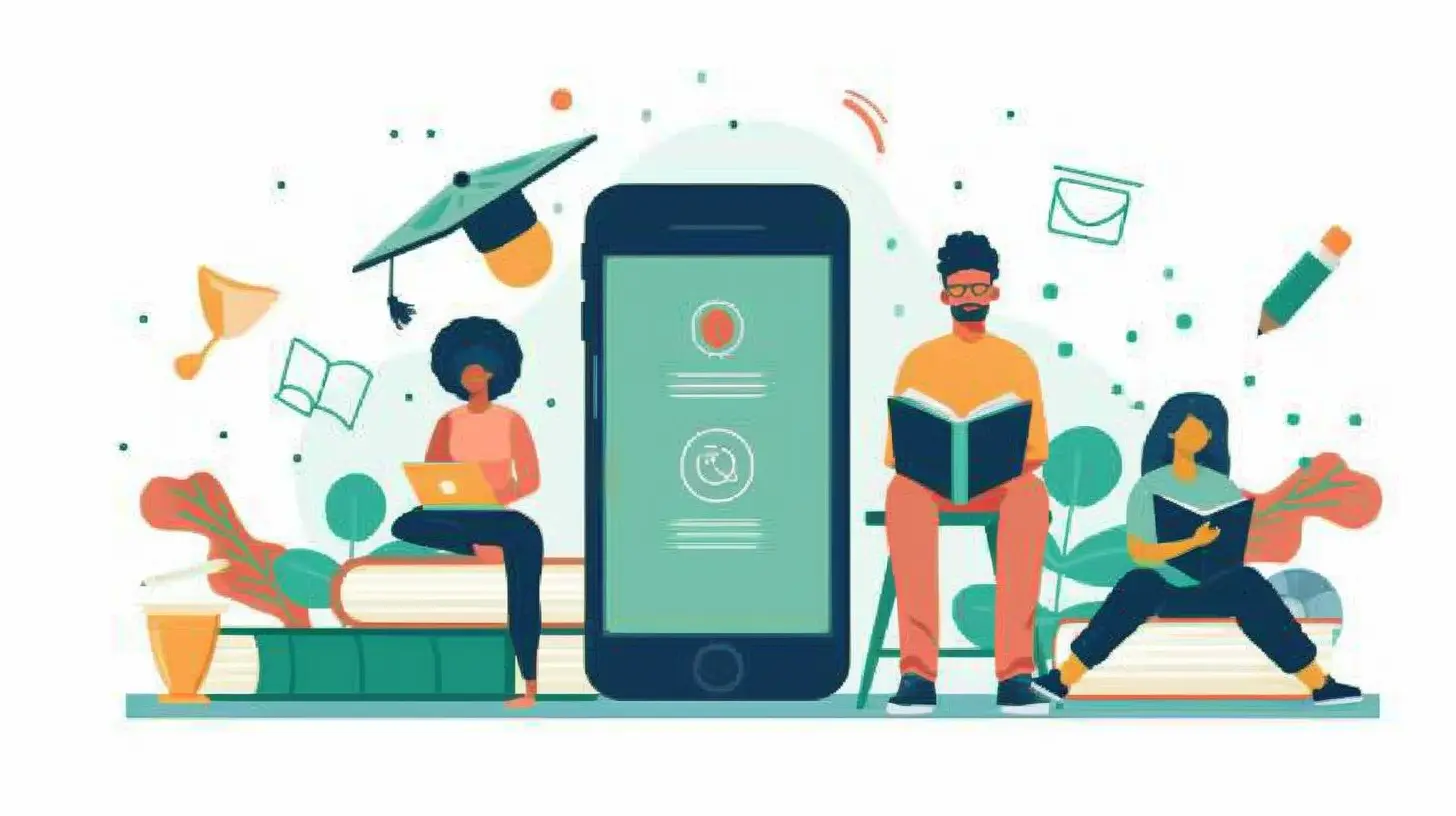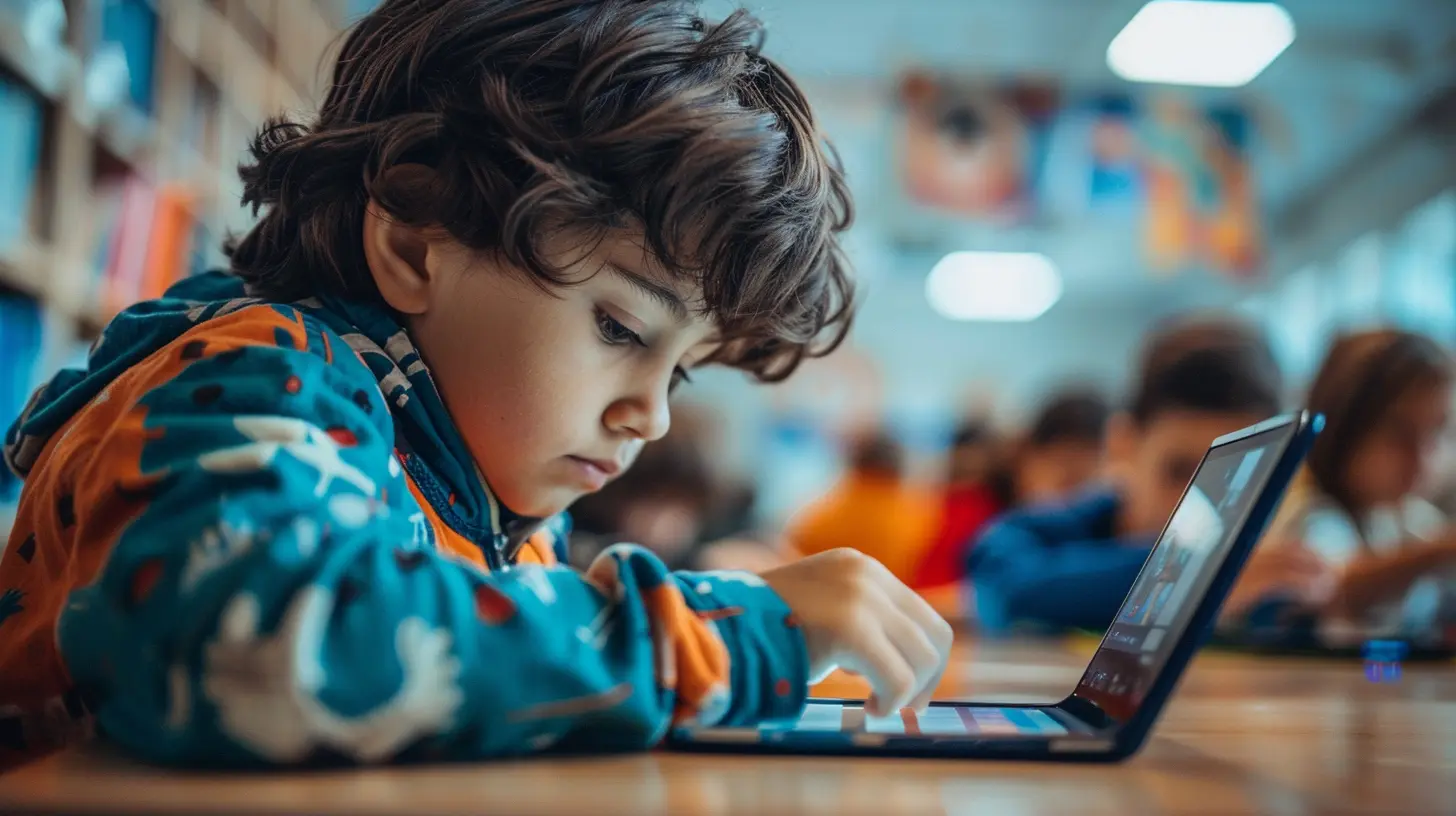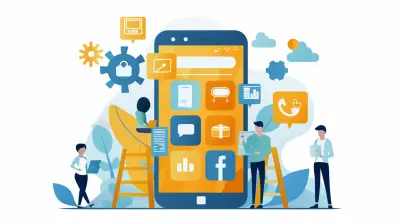How Mobile Apps are Reinventing Traditional Education
4 October 2025
Let’s face it: education isn’t what it used to be. The chalkboard has been replaced by tablets, and textbooks are now PDFs. We’re living in a time where students can learn algebra while lying on their couch in pajamas, and mobile apps are the superheroes making it all possible. If you’ve ever wondered how mobile apps are flipping the script on traditional education, you’re in for a ride.

The Digital Shift: More Than Just A Trend
You might think the use of mobile apps in education is just a fad—something students use to avoid the classroom grind. But guess what? It’s far more than that. Mobile apps have become a foundational part of how learning happens now. The global pandemic just accelerated a trend that was already on the rise. Whether it's interactive flashcards or AI-powered tutoring, mobile apps are shaping the classroom of the future—one download at a time.
Breaking the Chains of the Traditional Classroom
Remember sitting in those hard desks for hours, staring at a whiteboard, zoning out halfway through a lecture? That model, while still present, is slowly being reinvented. Traditional education placed huge emphasis on physical presence and one-size-fits-all teaching. But every student is different, right?Mobile apps allow for personalized learning. Want to speed ahead in math but need extra help in reading? No problem. Apps like Duolingo, Khan Academy, and Coursera adapt to your learning pace and style. That’s something a textbook just can’t do.

Learning On the Go: Education That Fits In Your Pocket
We’re glued to our phones anyway—why not make that time productive? One of the biggest perks of mobile apps is flexibility. You can learn anytime, anywhere. On the bus? Knock out a lesson. Waiting for your coffee? Review your flashcards.This kind of microlearning, where lessons are broken down into bite-sized chunks, helps with focus and retention. Think of it as snackable content for your brain—easy to digest and surprisingly addictive.

Gamification: Turning Learning Into a Game
You ever wonder why it’s so easy to spend hours playing Candy Crush but zoning out five minutes into a history book? It’s simple—games are designed to keep you hooked.Educational apps have caught on. They use gamification—things like points, levels, badges, and leaderboards—to make learning as engaging as your favorite mobile game. Apps like Quizlet or Prodigy make studying feel less like a chore and more like play. It’s a psychological trick, sure, but one that works wonders.
Instant Feedback: No More Waiting for Report Cards
In traditional education, you take a test, wait days (sometimes weeks), and then finally get your results. By then, you might not even remember what the test was about. Mobile apps squash that delay.With app-based learning, you get immediate feedback. Make a mistake? You’ll know right away and usually get a quick explanation. This real-time correction helps reinforce learning and boosts confidence.
A Personalized Approach to Mastery
Everyone has a unique way of learning. Some are visual learners, others absorb information by listening or doing. Traditional systems often ignore these differences. Mobile apps, however, embrace them.Many apps use AI and data analytics to personalize learning paths. They track your progress, pinpoint your weaknesses, and adapt content to match your strengths. It's like having a tutor in your pocket, 24/7, minus the awkward small talk.
Bridging the Education Gap
Equity in education has always been a challenge. Not all schools have access to the same resources, and not every family can afford private tutors. Here’s where mobile apps become game-changers.Many educational apps are either free or affordable, opening doors for students regardless of background. All you need is a smartphone and internet—things that are becoming more accessible worldwide. This has huge implications for underprivileged communities and remote areas.
Collaboration Without Borders
Think back to old-school group projects—coordinating schedules, meeting in libraries, and hoping someone actually pulls their weight. Now, students can collaborate in real-time using apps and platforms like Google Classroom, Microsoft Teams, and Edmodo.These tools enable virtual teamwork, where students from across the globe can work together on projects, share resources, and learn from one another. It’s no longer just learning from your teacher—it’s learning from the world.
The Teacher’s New Best Friend
You might think that mobile apps are replacing teachers, but that’s not the case. In fact, they’re boosting teachers’ superpowers. Educators are using apps to track student progress, assign homework, and even create interactive lessons.This means teachers can spend less time grading papers and more time actually teaching and mentoring. They also get valuable insights into each student’s performance, which helps them support students better.
Tackling Learning Disabilities with Tech
For students with learning disabilities like dyslexia or ADHD, traditional education methods can be overwhelming. Mobile apps can level the playing field.There are tons of specialized apps that cater to specific learning needs. Tools with speech-to-text, audio books, or visual schedules help students learn in ways that suit them. It's inclusive, enabling all students to thrive, not just those who fit the "standard" mold.
Language Barriers? Not Anymore.
Learning in a non-native language is hard—like reading a book upside down during a rollercoaster ride. But mobile apps offer multilingual support and real-time translation, making content accessible to a much broader audience.Apps like Duolingo, Memrise, and HelloTalk allow students to pick up new languages or understand complex topics in their own language first, easing the transition to another language.
Real-World Skills in the Palm of Your Hand
Education isn’t just about passing tests—it’s about preparing for life. Mobile apps offer skills-based learning that focuses on real-world applications. Want to learn coding? Try SoloLearn. Need to improve your typing speed? There’s an app for that too.This kind of practical, hands-on knowledge isn't always covered in traditional school curricula, but it’s invaluable in today’s tech-driven world.
The Data Revolution: Smarter Learning
Thanks to big data and AI, apps can now track every tap, swipe, and pause you make. While that might sound a little Big Brother-ish, it’s actually super helpful when used ethically.This data helps apps fine-tune their algorithms to make learning more effective. It highlights where students struggle, what keeps them engaged, and how they retain information. It’s like having a learning GPS that always knows where you are and where you need to go next.
Challenges Ahead: It’s Not All Sunshine and Rainbows
Now, it wouldn’t be fair to sing all the praises of mobile apps without talking about the downsides. Screen time is a major concern—too much of it can lead to eye strain, sleep issues, and reduced attention spans.Also, not every student has reliable access to a smartphone or internet connection. And let’s not forget: not all apps are created equal. Some are poorly designed, stuffed with ads, or lack educational value.
That means teachers, parents, and students need to be discerning about which apps they use. Reviews, recommendations, and trial runs can help make smarter choices.
What the Future Looks Like
So where do we go from here? The future of mobile learning looks bright—and it’s only going to get smarter. With the integration of virtual reality (VR), augmented reality (AR), and AI-powered tutors, we’re on the verge of making learning feel like a sci-fi movie (in the best way possible).Imagine exploring the Roman Empire in VR or conducting chemistry experiments in virtual labs without any danger. The line between education and entertainment will continue to blur—and that’s a good thing.
Final Thoughts: A New Era of Education
Mobile apps are not just a convenient addition to traditional education—they’re revolutionizing it. They offer personalized, flexible, engaging, and inclusive learning experiences that traditional models often fail to deliver.No, they won’t completely replace classrooms or teachers. But they’ll definitely complement them in powerful ways. Whether you're a student, a parent, or a teacher, embracing this tech-driven transformation can lead to better learning, higher engagement, and even a bit more fun along the way.
So, if you haven’t already, maybe it’s time to turn your phone into your new favorite school supply.
all images in this post were generated using AI tools
Category:
Mobile AppsAuthor:

Kira Sanders
Discussion
rate this article
1 comments
Morrow Cannon
Mobile apps are transforming traditional education by increasing accessibility, personalizing learning experiences, and fostering engagement. As technology evolves, it empowers both educators and students, creating dynamic environments that adapt to diverse needs, ultimately enhancing the pursuit of knowledge in innovative ways.
October 5, 2025 at 4:16 AM

Kira Sanders
Thank you for your insights! I completely agree that mobile apps are revolutionizing education by making learning more accessible and engaging for everyone.


